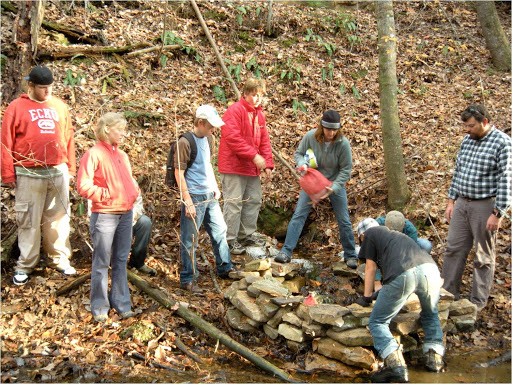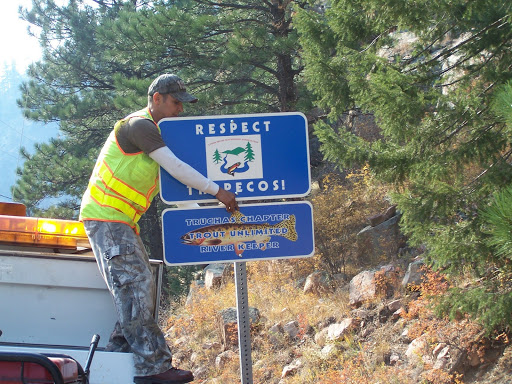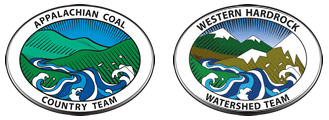Based on the work of
McClure River Restoration Project
Southwest Virginia
McClure River Restoration Project (MRRP) found a way to connect with local businesses, elected officials and citizens through an Adopt-a-Stream program. Their “Miles for McClure” program resembled “Adopt-a-Highway,” but for the local river. MRRP was also able to make it a fundraiser, going person-to-person in their community selling “miles” of the stream for sponsorship. Individuals, businesses and organizations that donated were rewarded with public recognition and certificates.

Tested by
Upper Guyandotte Watershed Association
Southern West Virginia
Upper Guyandotte Watershed Association (UGWA) faces ongoing problems with trash dumped in and along local streams. Most community members already know about and support the organization, but volunteerism and tangible support is low. UGWA hoped that implementing a practice comparable to “Adopt-a-Highway” would increase volunteer involvement in stream clean-ups. UGWA wanted to focus on partnering with organizations to organize regular stream clean-ups on the section of stream they adopt. Partners would be recognized with plaques and possibly an annual dinner. This would also be a way to bring volunteerism into the center of the program with outreach as a secondary benefit. There was little progress or success by board members in contacting community members on UGWA’s behalf. Without the manpower to work person-to-person, UGWA decided to host public meetings in each subwatershed as a way to talk to many residents at once and inform them of volunteer opportunities. This gives the communities a contact when they have questions and UGWA a contact when they have projects to implement. UGWA has seen a huge increase in local partners who help with contacts and volunteers for future projects, staying updated on other organizations activities and maintaining contact with all communities in the watershed.
Tested by
Upper Pecos Watershed Association
Northern New Mexico
The Village of Pecos, NM, relies on recreational tourism to augment its economy. By implementing an “Adopt-a-Stream” Riverkeeper Program, Upper Pecos Watershed Association (UPWA) hoped to further protect the area’s natural scenic beauty, thereby enhancing the community’s quality of life. UPWA planned to launch a Pecos Riverkeeper program to encourage volunteers to take ownership and pride in the river. It was also designed to reduce their dependence on UPWA to organize biannual clean-ups. This program was implemented to encourage residents to be active in cleaning up the river and canyon on their own. UPWA’s community doesn’t have a lot of businesses, however, so they decided to focus more on individual donors or organizations that want to take care of the portion of the river through clean-ups and monitoring. UPWA also wanted to post Riverkeeper signs along the road to take advantage of the close proximity of the river to the road. As UPWA worked to recruit Riverkeepers, they found it difficult to involve individuals because those wealthy enough to donate are generally non-permanent residents that cannot do regular clean-ups and monitoring. UPWA began trying to pair individual donors unable to commit to year-round upkeep with local groups and organizations willing to volunteer. However, they were not successful. The Truchas Chapter of Trout Unlimited (TCTU) became UPWA’s first Riverkeeper, adopting a stretch of river from Windy Bridge to Brush Ranch in the Pecos River Canyon. Signs were posted at each end of their stretch of river to inspire future Riverkeepers.

“We would recommend the Riverkeeper Program. It is a great way to raise awareness, improve the environment and bring in additional funds. I think it has been both successful and encouraging. The Upper Pecos Watershed has needed help for a long time and just seeing the Riverkeeper signs gives people hope.”
– Upper Pecos Watershed Association
